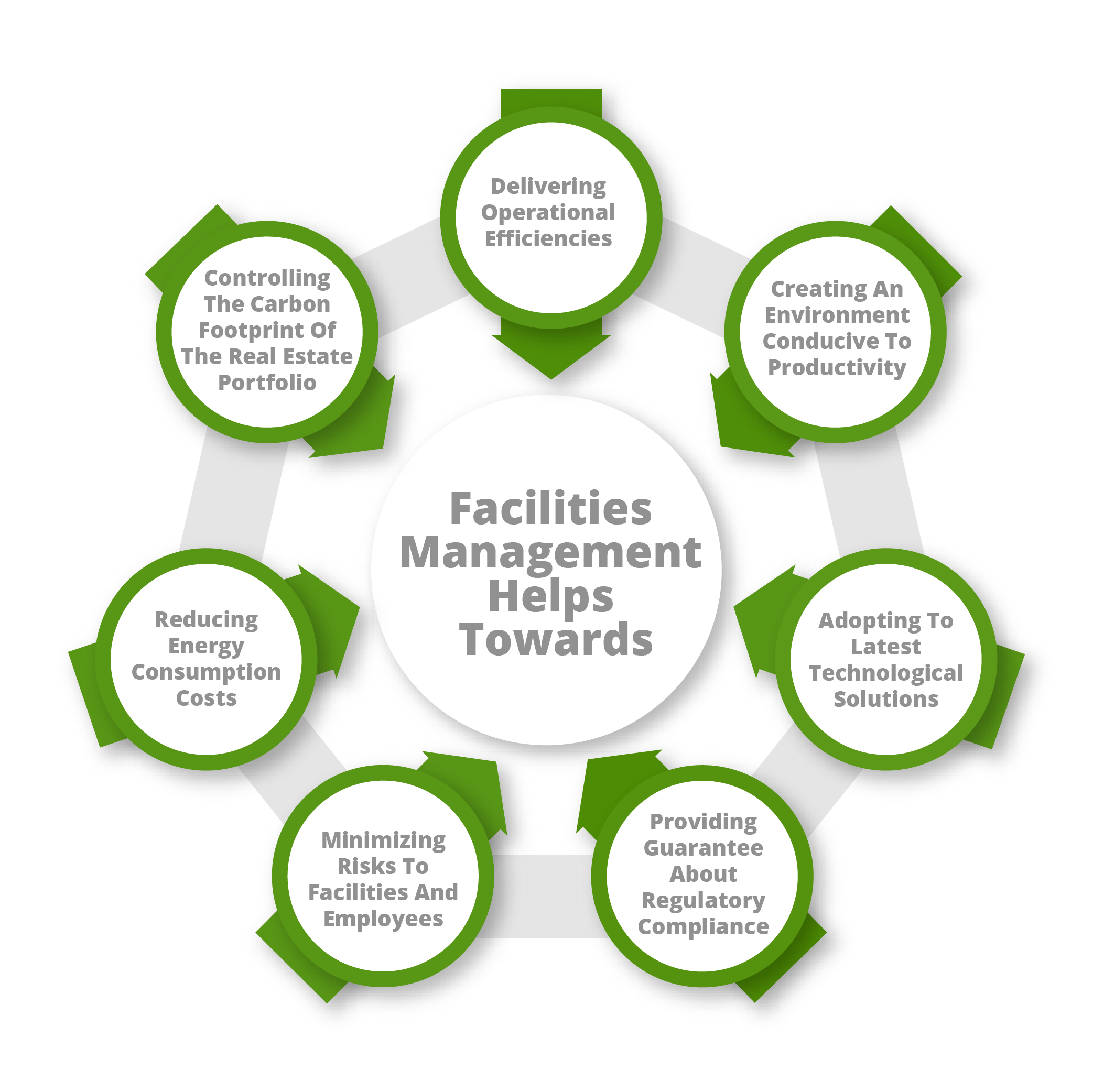Why Total Facility Management Is Important for Organization Success
Total Facility Management (TFM) offers as a keystone for company success by integrating varied functional elements such as maintenance, room usage, and safety and security actions. This combination not just boosts effectiveness yet likewise straightens facility management with overarching business objectives. As organizations navigate an affordable landscape, recognizing the multifaceted advantages of TFM can be crucial in driving price efficiency and enhancing employee productivity. The ramifications of taking on TFM expand much beyond immediate functional gains, elevating essential questions regarding its long-term influence on organizational resilience and competition. What exists under this important structure?
Recognizing Total Facility Management
Total Facility Management (TFM) incorporates an extensive technique to handling an organization's buildings and connected solutions to make sure ideal performance, safety, and performance. TFM integrates various techniques, consisting of upkeep, operations, room management, and safety methods, to create a cohesive framework that sustains a company's core goals.
At its core, TFM aims to improve the processes associated with facility management, enhancing and decreasing redundancies service shipment. This method involves the sychronisation of tasks associated to residential or commercial property management, such as repair work, cleansing, and power management, to foster a productive setting for stakeholders and workers alike. TFM also emphasizes the significance of implementing best practices and ingenious innovations to boost service quality and reduce functional expenses.
Recognizing TFM calls for recognition of its tactical value in sustaining a company's mission. By straightening facility management activities with business goals, TFM enhances general efficiency while making sure conformity with health, security, and environmental policies. Therefore, TFM offers not only as a logistical function but also as a critical property, adding to a company's long-term sustainability and development. In summary, TFM is important for producing a well-functioning atmosphere conducive to organization success.
Secret Advantages of TFM
Leveraging a comprehensive strategy, organizations that implement Total Facility Management (TFM) unlock a myriad of advantages that add to general business success. One of the main advantages of TFM is the improvement of functional performance. By consolidating facility solutions under a unified management framework, companies can simplify processes, reduce redundancies, and boost interaction throughout departments.
Furthermore, TFM advertises an aggressive maintenance strategy, which decreases downtime and prolongs the life-span of facilitiess and devices (Total Facility Management). This aggressive approach not only improves performance however also cultivates a much safer working setting, ultimately leading to higher staff member satisfaction and retention prices
Furthermore, TFM facilitates far better resource allocation by giving insights into facility performance metrics. Organizations can determine locations for enhancement, permitting them to make informed decisions that straighten with their calculated goals.
TFM and Expense Effectiveness
Attaining price effectiveness is an essential goal for organizations, and Total Facility Management (TFM) plays a critical duty in this undertaking - Total Facility Management. By incorporating numerous facility solutions under a single management framework, TFM enables companies to streamline operations and lower redundancies. This holistic strategy results in considerable price financial savings, as it gets rid of the need for numerous suppliers and simplifies procurement procedures
Furthermore, TFM fosters proactive upkeep approaches, which minimize the danger of pricey fixings and downtime. my link By prioritizing precautionary actions, organizations can extend the lifespan of their properties and lower unexpected expenditures. Additionally, TFM incorporates power management methods, which can significantly reduce energy costs via effective resource use.
The centralization of information and analytics within TFM enables organizations to make educated economic decisions. By determining trends and locations for improvement, TFM makes it possible for tailored approaches that further improve price management. The scalability of TFM remedies makes sure that as organizations grow, their facility management practices stay effective and straightened with monetary goals.
Enhancing Worker Productivity
A well-managed facility can dramatically enhance staff member efficiency by creating a conducive workplace. Efficient Total Facility Management (TFM) makes sure that all aspects of the workplace-- from lights and temperature to sanitation and security-- are maximized. When staff members operate in a space that is properly maintained and comfy, they are most likely to concentrate on their jobs, leading to greater outcome and task complete satisfaction.
Additionally, TFM can boost partnership with the tactical design of public areas, motivating teamwork and advancement. By purchasing the ideal sources and technology, organizations can facilitate seamless communication and enhance process, additionally boosting productivity. Normal upkeep and punctual responses to facility problems prevent interruptions that can otherwise hinder efficiency.
Additionally, a healthy and risk-free workplace, sustained by TFM methods, minimizes absence and advertises well-being, straight correlating with raised productivity degrees. Inevitably, focusing on facility management is a financial investment not just in physical assets but also in the workforce itself. By cultivating an environment that supports worker needs and choices, businesses can grow an extra involved and efficient workforce, driving total success and affordable benefit.

Future Trends in TFM
Embracing technological advancements is readied to reshape the landscape of Total Facility Management best site (TFM) in the coming years. As the demand for effectiveness and sustainability increases, TFM will increasingly adopt smart building technologies, incorporating Web of Points (IoT) gadgets to handle and keep an eye on facility procedures in real-time. This shift will certainly make it possible for proactive maintenance, considerably minimizing operational costs and boosting service delivery.

Sustainability remains a crucial focus, with TFM experts anticipated to focus on environmentally friendly practices. This consists of using renewable energy sources and enhancing waste management systems to decrease the carbon footprint of facilitiess.
Remote management abilities will certainly likewise be increased, permitting facility managers to manage operations from virtually anywhere. This adaptability will become important as organizations adapt to hybrid work versions. In recap, the future of TFM is poised for transformation with modern technology, sustainability, and improved operational methods, guaranteeing services stay affordable in an evolving landscape.
Final Thought
In final thought, Total Facility Management is a crucial component for achieving service success. By integrating various functional functions, TFM improves performance and straightens facility management learn the facts here now with organizational objectives. The resulting expense financial savings, boosted employee performance, and much safer workplace add substantially to general efficiency. As businesses progressively take on ingenious modern technologies and sustainable practices, the importance of TFM will proceed to grow, making certain long-term functional efficiency and competition in an advancing industry.
